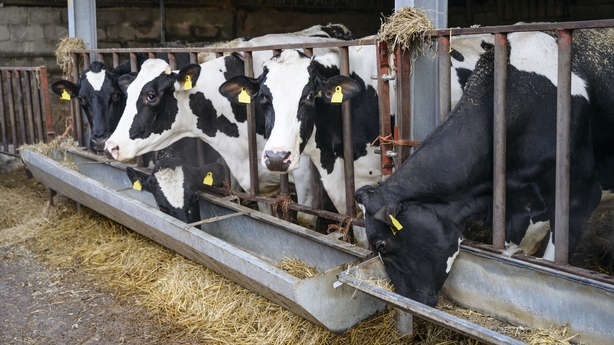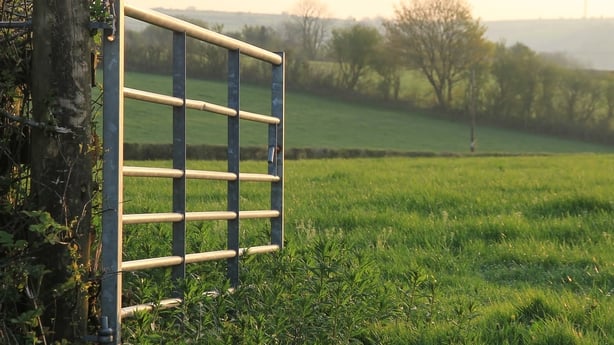Farmers are concerned that they will soon be unable to get vets to treat farm animals in some rural areas.
The Irish Natura and Hill Farmers Association says some parts of the country are already struggling to get vet cover. The group is calling for measures to help retain vets in rural practices and more access to college places.
Speaking on RTÉ's News At One, INHFA President Vincent Roddy said the biggest concern is along the western seaboard.
"We’d be looking at cattle and sheep farmers," he said, adding that vets were needed on farms for TB testing and for calving where critical cases require a Caesarean section.
"A vet is the only one qualified and definitely the only one a farmer would want to see there," said Mr Roddy.
We need your consent to load this rte-player contentWe use rte-player to manage extra content that can set cookies on your device and collect data about your activity. Please review their details and accept them to load the content.Manage Preferences
Recent figures show there are 7.4 million cattle in Ireland and 6 million sheep. That's over 13 million animals who may need the services or a vet at some point in their lives.
Over 300 vets joined the register of the Irish Veterinary Council last year, bringing the number of registered practitioners to over 3,300.
Yet dozens of vacancies across small, large and mixed animal veterinary practices appear in the current issue of Veterinary Ireland journal.
Professor Eoin Ryan of the Herd Health and Animal Husbandry Team in UCD’s School of Veterinary Medicine says 200-300 experienced vets were scooped up by the Department of Agriculture due to Brexit.
But he says the current shortage is due to poor retention of vets in employment.
"If you are not able to keep what you have, you can’t just keep recruiting. You have to try and retain what you have," he said.

"To retain the vets we have in clinical practice we need to address the issues around work-life balance, out-of-hours rotas and salary," he added.
Working as a farm vet, Ryan says, typically involves a 50–70-hour week with callouts at all times of the day and night.
But are more veterinary students opting to work in pet practices rather than with farm animals?
Retired Donegal vet Gerard Roarty believes too few students from farming backgrounds achieve the high points needed to get into UCD’s School of Veterinary Medicine.
"You don’t need 625 points to lie on your belly in a byre in Glencolumbkille at 4am," he said, adding that farm experience or a farming background should be taken into account when selecting veterinary students.
Of the hundreds of secondary school students who completed work experience at Roarty’s former practice in Donegal he says only one earned a place in the country’s only veterinary school. At the same time, he says practices in Donegal cannot hire vets to work with large animals.

Just one-in-four vets added to the Veterinary Council register last year trained in Ireland.
Poland and Hungary train more Irish vets than Ireland.
With just 90 students entering veterinary medicine at UCD each year, Gerard Roarty says a proposed second veterinary school can't come quick enough
But UCD’s Professor Eoin Ryan says more college places won’t necessarily lower points because demand will remain high.
To help alleviate the vet shortage, he suggests government subsidies to rural practices.
"In other countries such as Scotland the government will help subsidise vets to keep them in those remote parts of the country. We will need that here as well.," he said.
Vincent Roddy of the INHFA agrees that subsidies should be examined.
"I think it is something we could look at," he said.







